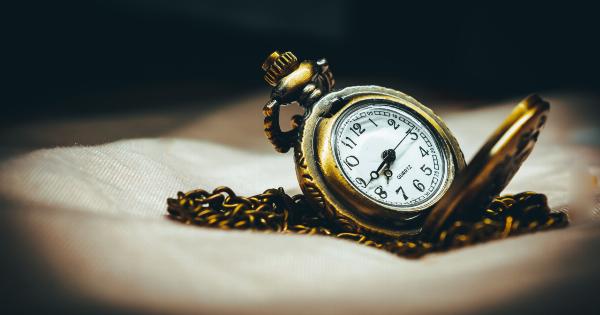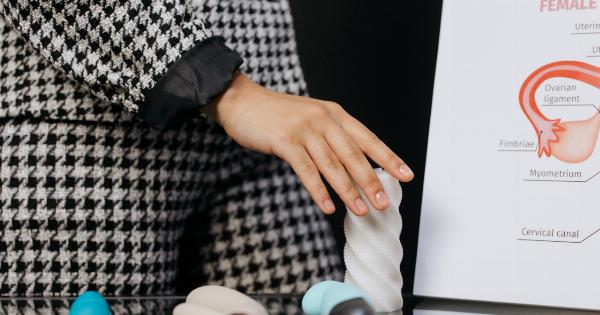Our sexual interest and desire can often be influenced by a range of factors that extend beyond the obvious. While attraction and chemistry play a significant role, numerous unexpected elements can impact our sexual interest.
From lifestyle choices to emotional wellbeing, various aspects of our lives can either enhance or diminish our sexual desire. In this article, we explore ten surprising factors that can greatly affect our sexual interest.
1. Stress Levels
One of the most overlooked factors affecting our sexual interest is stress. High levels of stress can lead to a decrease in libido, making it challenging to maintain sexual desire.
Stress triggers the production of cortisol, commonly known as the stress hormone, which can suppress sexual hormones and inhibit sexual arousal. Finding healthy ways to manage stress, such as engaging in regular exercise or practicing mindfulness, can help maintain a healthy sexual interest.
2. Relationship Dynamics
The state of our relationships can have a significant impact on our sexual interest. Feeling emotionally connected, supported, and satisfied within a relationship is crucial for maintaining a healthy sexual desire.
Relationship conflicts, unresolved issues, or feelings of resentment can all contribute to a decline in sexual interest. Open communication, trust-building exercises, and couples therapy can help address these dynamics and revitalize sexual interest.
3. Medications
Certain medications can impact sexual interest as a side effect. For instance, antidepressants and anti-anxiety medications are known to decrease libido.
Hormonal contraceptives, such as birth control pills, can also affect sexual desire due to their impact on hormone levels. It’s essential to consult with a healthcare professional if you suspect that medication may be impacting your sexual interest as alternative solutions or adjustments can often be made.
4. Substance Use
Substance use, including alcohol, nicotine, and recreational drugs, can significantly affect sexual interest. While alcohol is often seen as a social lubricant, excessive alcohol consumption can impair sexual function and decrease libido.
Nicotine, commonly found in cigarettes, can also negatively impact sexual desire. Recreational drugs can alter neurotransmitter functions, leading to a decline or alteration in sexual interest. Reducing substance use or seeking support for addiction can help restore sexual interest.
5. Body Image
Body image concerns can greatly impact our sexual interest. Feeling dissatisfied or self-conscious about our bodies can diminish confidence and make it difficult to enjoy sexual experiences.
Society’s unrealistic beauty standards can contribute to body image issues, creating feelings of inadequacy. Engaging in body-positive practices, such as self-acceptance exercises or seeking therapy, can improve body image and positively impact sexual interest.
6. Fatigue
Feeling constantly fatigued or experiencing insomnia can have a direct impact on our sexual desire. Lack of sleep and fatigue can reduce energy levels, making it challenging to engage in sexual activities or feel motivated for intimacy.
Prioritizing rest, creating a sleep routine, and managing daily stress can help combat fatigue and improve sexual interest.
7. Emotional Wellbeing
Our emotional state goes hand in hand with our sexual interest. Experiencing depression, anxiety, or other emotional challenges can decrease libido and hinder sexual desire.
Taking steps to manage our emotional wellbeing, such as seeking therapy, practicing self-care, or exploring coping strategies, can enhance our sexual interest and overall satisfaction.
8. Hormonal Fluctuations
Fluctuations in hormone levels can significantly impact our sexual interest. Hormonal changes during menstruation, pregnancy, or menopause can affect libido and sexual desire.
Understanding how these changes impact our bodies and exploring alternative sexual activities or communication with partners can help maintain a satisfying sexual interest.
9. Work-Life Balance
The demands of our professional lives can spill over into our personal lives, impacting our sexual interest. High levels of work-related stress, long work hours, or a lack of work-life balance can leave little room for intimacy and reduce sexual desire.
Setting boundaries, prioritizing personal time, and maintaining open communication with partners can help improve work-life balance and enhance sexual interest.
10. Mental Health Conditions
Mental health conditions, such as depression, anxiety disorders, or post-traumatic stress disorder (PTSD), can significantly impact our sexual interest.
These conditions often reduce energy, impair concentration, and alter our overall mood, affecting sexual desire. Seeking appropriate mental health support, whether through therapy or medication, can help manage these conditions and restore sexual interest.





























